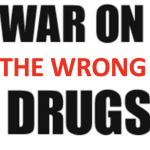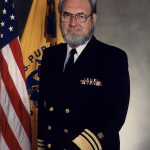Policymakers often talk about protecting patients against the predatory practices of insurers and PBMs. It is about time for state and federal legislators to support such legislations to ensure that ONLY patients benefit from such patient assistance programs and to stop PBM and insurers from profiteering on the backs of patients.
Policy & Ethics
The Consumer Products Safety Commission (CPSC) recently concluded that gas stoves have polluted our indoor spaces. So polluted that “more than 12% of current childhood asthma cases in the US can be attributed to gas stove use.” Could that be true? Only if you believe in Mathmagic.
The Occupational Health and Safety Act (OSHA) was “born” in 1971. Its “mother,” the pioneer of occupational medicine in America, Alice Hamilton, was born over 100 years earlier, dying three months before the Act was signed into law. It took more than fifty years after she was named the first woman (assistant) professor at Harvard Medical School, launching their industrial medicine department, for the country to recognize the need for such legislation. So, why did it take so long?
Cops are taking their own fentanyl “copaganda” too seriously. It’s one thing when it causes panic attacks among first responders, but another thing when it causes unjust charges to be piled on drug offenders who will likely be forced to take plea deals.
The 2016 and 2022 CDC opioid prescribing guidelines were based on the assertion that doctor over-prescribing to patients has been a major cause of opioid use disorder and overdose-related deaths. Published
data from the CDC and other sources reveals that this assertion was incorrect – and the CDC knew it was incorrect when it published its guidelines.
Acid indigestion. Just the words give me heartburn. Multiple remedies are available, both prescription and over-the-counter. But hundreds of thousands of people are claiming that they got cancer from one of them: Zantac. Their cases are pending in various courts around the country. The decision regarding the admissibility of their expert testimony in federal cases was just released. So, how did the plaintiffs fare?
The war on pain patients and the doctors who treat them continues, the latest volley being fired by Congress. Cato Institute's Dr. Jeffrey Singer tells us about how the DEA, with the backing of lawmakers, is able to continue its ridiculous campaign that makes opioid prescribing even more difficult for physicians.
It appears to defy logic that naloxone, the antidote for opioid overdoses, isn't available on demand. After all, it's a lifesaving drug with no potential for abuse. But it's not so simple, as Dr. Jeffrey Singer explains.
Everett Koop was a man of morals. A religious man who read the bible. He was also a man of science. He got his job through politics. Yet he knew how to keep these forces separate. Nowhere was this more apparent than in his pushback against political pressures to oppose abortion on health grounds and to educate the populace on AIDS and against tobacco use.
The Washington Post just published a sweeping 6000-word investigative article about multiple aspects of the fentanyl epidemic. Although the piece gives a very thorough account of multiple facets of our losing battle with illicit fentanyl, it is unfortunate that the authors could not spare a few words to discuss the root cause of the fentanyl plague – the relentless war on prescription painkillers—a perfect example of the Iron Law of Prohibition.
Those who are not researchers may have wondered how human research is regulated, how research subjects are protected, and how we ensure research is done correctly. Those who do human research know only too well: the Institutional Review Board.
The recipe for good public health policy is like a souffle- simple ingredients combined in a complex manner. Done well - it’s a delight. Heavy-handed, using sour (outdated) ingredients – it’s a mess, even toxic.











